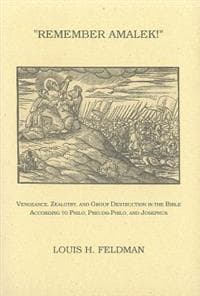
Remember Amalek!
470 kr
470 kr
Tidligere laveste pris:
473 kr
To., 5 juni - on., 11 juni
Sikker betaling
14 dagers åpent kjøp
Selges og leveres av
Adlibris
Produktbeskrivelse
Artikkel nr.
adac4476-32e5-4d75-a05a-b7d7fd45f0ef
Remember Amalek!
470 kr
470 kr
Tidligere laveste pris:
473 kr
To., 5 juni - on., 11 juni
Sikker betaling
14 dagers åpent kjøp
Selges og leveres av
Adlibris
Lignende toppselgere

POP MART Labubu The Monsters Macaron 17 cm
219 kr

POP MART Labubu The Monsters Big into Energy 17 cm
239 kr

Øreputer for Bose QuietComfort - QC35/QC25/QC15/AE2 Hodetelefoner Svart
99 kr

Labubu The Monsters Macaron Blind Box fra POP MART
259 kr

INF TYPE-C Dual SD/TF-kortleser for rask dataoverføring 0
99 kr
Tidligere laveste pris:
107 kr

Anti-snork Bånd / Magnetiske Plaster - Stopper snorking
149 kr

Sony | Playstation® 5 Slim (Digital-versjon) - Spillekonsoll - 1TB SSD NVme - Wi-Fi/LAN - Hvid
5 744 kr
Tidligere laveste pris:
5 774 kr

Playstation 5 DualSense Controller Midnight Black
799 kr

4-Pak - Tesla Senterkopper - Bil Svart/silver
129 kr

Luftrenseenhet - Renser / Saniterer luften - 20,000 mg/h
599 kr
Anbefalinger til dig

Hundetrimmer / Potetrimmer - Trimmer for Poter
199 kr

6x60ml = 360ml - Kirkland Extra Strength 5% Men Hair Regrowth 60ml Hair Loss
1 390 kr

10x Premium hjørnebeskyttelse og kantbeskyttelse for barn
119 kr
Tidligere laveste pris:
146 kr

Sangean MMR88 sveivradio med lommelykt, solcelle, USB, gul/svart
1 169 kr

Batteri Varta Longlife Power LR03/AAA 18 pk
89 kr

Lader for iPhone - Hurtiglader - Adapter + Kabel 20W USB-C
129 kr

Ankelstropp for styrketrening med kabelmaskiner 2 Pack
152 kr

3-Pak - Fidget Spinners med Sugekopp for Barn
119 kr
Tidligere laveste pris:
139 kr

Geberit AquaClean Avkalkingsmiddel 4 stk
460 kr
Tidligere laveste pris:
461 kr

3x Kirkland Extra Strength 5% Men Hair Regrowth 60ml Hair Loss
749 kr